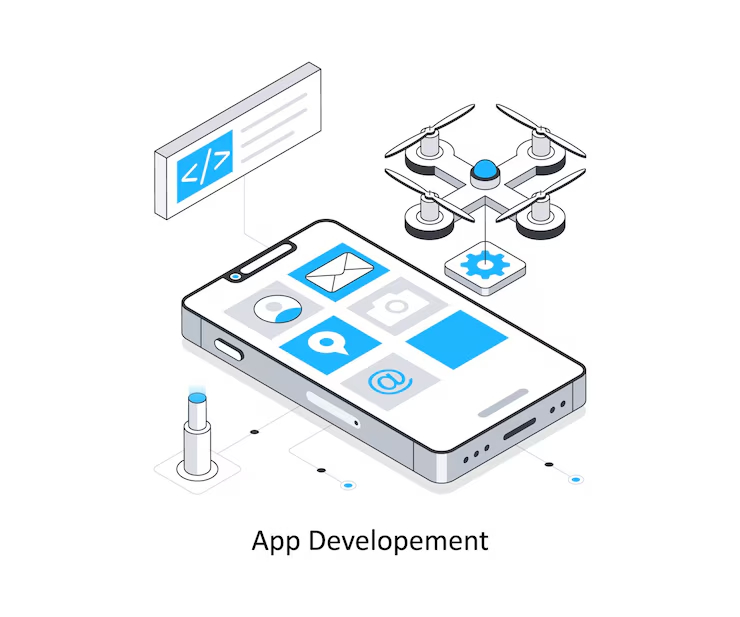Introduction
In today’s digital age, having a robust e-commerce website is essential for businesses looking to expand online. However, choosing the right e-commerce platform can be challenging. With numerous options like Shopify, WooCommerce, Magento, and custom-built solutions, selecting the best one depends on your business needs, budget, and scalability. This guide will help you understand the features, advantages, and limitations of various e-commerce platforms so you can make an informed decision.Web development is the process of designing, building, and maintaining websites to ensure functionality, performance, and a seamless user experience.
Factors to Consider When Choosing an E-commerce Platform
Before diving into specific platforms, consider these crucial factors:
- Ease of Use: Does the platform require coding knowledge, or is it beginner-friendly?
- Scalability: Can it grow with your business?
- Customization: Does it offer flexibility to design and add features?
- SEO & Marketing Tools: How well does it support search engine optimization and marketing integrations?
- Security: Does it offer secure payment processing and data protection?
- Cost: What are the pricing models, including transaction fees and add-ons?
Top E-commerce Platforms Compared
1. Shopify: The All-in-One E-commerce Solution
Best For: Small to medium-sized businesses and startups
Pros:
- User-friendly, no coding required
- Secure and reliable hosting
- Built-in SEO and marketing tools
- 24/7 customer support
Cons:
- Monthly subscription fees
- Limited customization without advanced coding
- Transaction fees unless using Shopify Payments
2. WooCommerce: Flexible WordPress Plugin
Best For: Businesses using WordPress and requiring flexibility
Pros:
- Free and open-source
- Highly customizable with themes and plugins
- SEO-friendly due to WordPress integration
- Large developer community for support
Cons:
- Requires hosting and domain purchase separately
- May need coding knowledge for advanced features
- Performance can be affected by too many plugins
3. Magento: A Powerful Solution for Large Businesses
Best For: Large enterprises and businesses requiring custom solutions
Pros:
- Highly scalable and feature-rich
- Full customization with coding flexibility
- Strong SEO and marketing tools
- Supports multiple languages and currencies
Cons:
- Requires advanced technical skills or developer support
- Hosting and maintenance costs can be high
- Long setup time compared to other platforms
4. BigCommerce: Scalable and Feature-Packed
Best For: Businesses looking for an all-in-one, scalable solution
Pros:
- No transaction fees
- Strong SEO capabilities
- Built-in multi-channel selling (Amazon, eBay, Facebook, etc.)
- Flexible API for customization
Cons:
- Monthly pricing plans can be expensive
- Less theme variety compared to Shopify
- Some advanced features require technical knowledge
5. Custom E-commerce Development: Tailored to Your Needs
Best For: Businesses with unique needs requiring a personalized solution
Pros:
- Unlimited customization and scalability
- Full control over features and security
- No third-party platform restrictions
- Optimized for performance and branding
Cons:
- Higher initial development costs
- Requires ongoing maintenance and updates
- Longer development time
Which E-commerce Platform is Right for You?
- For beginners and startups: Shopify or WooCommerce
- For growing businesses needing scalability: BigCommerce
- For large enterprises: Magento or a custom solution
- For WordPress users: WooCommerce
- For complete customization: Custom-built e-commerce site
Conclusion
Selecting the right e-commerce platform is crucial for your business success. Whether you opt for Shopify’s simplicity, WooCommerce’s flexibility, Magento’s power, or a custom-built store, ensure it aligns with your business goals, budget, and scalability needs.Whether through organic search optimization or paid promotions, digital marketing helps companies establish a strong online presence and stay ahead of competitors. With the right strategy, businesses can connect with their audience at the right time, on the right platform, and with the right message.







